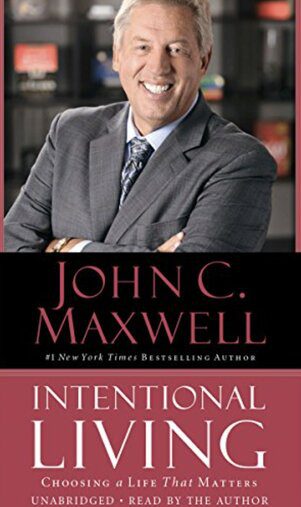In Intentional Living: Choosing a Life That Matters, leadership author John C. Maxwell describes the process of living an international life. Maxwell notes, “When you live each day with intentionality, there’s almost no limit to what you can do. You can transform yourself, your family, your community, and your nation. When enough people do that, they can change the world. When you intentionally use your everyday life to bring about positive change in the lives of others, you begin to live a life that matters.”
Intentional Living
A life that brings you daily satisfaction and continual rewards for merely working to make a difference—small or large—in the lives of others. Intentional living is the bridge that will lead you to a life that matters. Good intentions won’t get you there.
- Living intentionally will motivate you to start asking questions and begin prioritizing whatever is important to you.
- An unintentional life accepts everything and does nothing. An intentional life embraces only the things that will add to the mission of significance.
When you live an intentional lifestyle, you see many possibilities. When you are unintentional, you see few:
- Intentional living always has an idea. Unintentional living always has an excuse.
- Intentional living fixes the situation. Unintentional living fixes the blame.
- Intentional living makes it happen. Unintentional living wonders what happened.
- Intentional living says, “Here’s something I can do. Unintentional living says, “Why doesn’t someone else do something?”
When you get right down to it, intentional living is about living your best story.
Apathetic people will never make their world different. Indifferent people will not live a life that matters. Passive people take themselves out of the greatest of all stories—their own. Maybe they want to see themselves in the story, but they exist as mere observers on the sidelines. They wish for more, but they fail to become active participants. Why? Because they are unintentional.
In life, it is not what we get that makes us valuable. It is what we become in the process that brings value to our lives. Action is what converts human dreams into significance. It brings personal value that we can gain from no other source.
Significance is messy
If you want a better life, become intentional about your story. The return you get personally will knock your socks off. That doesn’t mean it will be smooth sailing. Significance is messy. It’s inconvenient. It’s overwhelming.
Why Your Why Is Important: Your why is the life’s blood of intentional living.
If you know your why and focus on going there with fierce determination, you can make sense of everything on your journey because you see it through the lens of why. This makes the way so much more meaningful and complete because you have context to understand the reason you’re on the journey in the first place.
“The purpose of life is not to be happy. It is to be useful, to be honorable, to be compassionate, to have it make some difference that you have lived and lived well.” – Ralph Waldo Emerson
Maxwell’s lessons learned in leadership:
1. No shortcuts. You only cheat yourself and everyone you are leading.
2. In every exercise use A-C-T. Note and do the things you should Apply, Change, and Teach others. Practicing what you are learning is the only way you will grow while you are learning.
3. Think long-term. This is not a “quick fix” endeavor. Leaders develop daily, not in a day.”
4. Think beyond yourself. Your goal is to get better so you can help your team get better. If you want to add, do it yourself. If you want to multiply, take others with you.
5. Have fun. I define growth as happiness. My team promises to give you what you need to help you become what you want to be! We are 100 percent with you. No excuses. Together we can make a difference! This is your chance to do something that will be a strong inspiration to thousands. Get in the story! You are the story!”
Leadership is a verb
- Model—I do it. Before I try to teach someone else, I work to become good at it so that I know what I’m doing.
- Mentor—I do it and you watch. Learning begins when I show someone how to do what I do. I learned in Lancaster never to work alone. No matter what task I was doing, I always tried to take with me someone who wanted to learn.
- Monitor—You do it and I watch. Nobody learns how to do something well on the first try. People need to be coached. When others do the task and I’m there to watch, I can help them troubleshoot problems and improve.
- Motivate—You do it. I always try to hand off tasks as soon as possible and encourage the people I’ve trained. I become their biggest cheerleader.
- Multiply—You do it and someone else is with you. This is the final step. I don’t want the equipping cycle to end with me. I want it to continue. When I train someone to do something, I want them to turn around and train someone else, just as I did them.
When faced with obstacles, people have different responses. There are…
- “I Can’t” People: They are convinced that they can’t, so they won’t and don’t.
- “I Don’t Think I Can” People: These people might be able to, but they talk themselves out of it. As a result they fulfill their words by not trying.
- “Can I?” People: These individuals allow their doubts to control their actions, which can lead to failure.
- “How Can I?” People: These people have already made the decision to tackle their tough assignments. The only substantial question they struggle with is how they are going to do it.”
All the best in your quest to get better. Don’t Settle: Live with Passion.



1 Comment
Pingback: Goal Update: February 2023 - Lanre Dahunsi. | Lanre Dahunsi